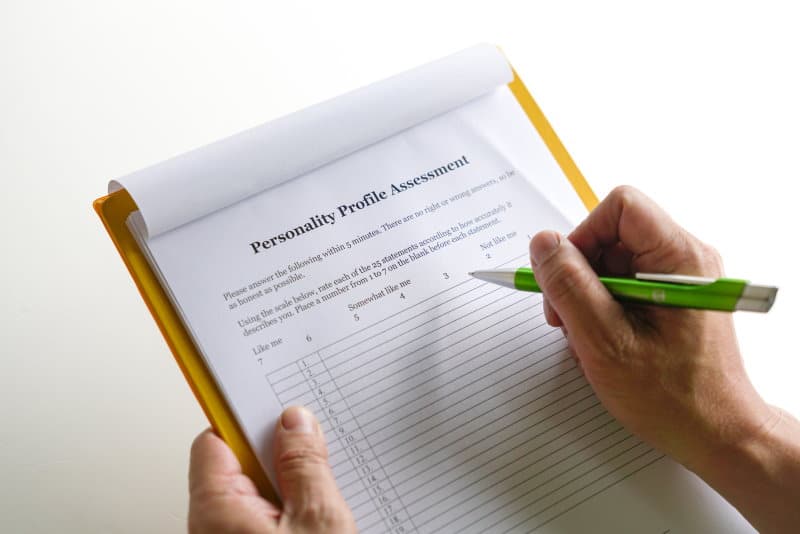Can a Narcissist Pass a Psychological Evaluation?
*We may earn a commission for purchases made using our links. Please see our disclosure to learn more.
Diagnosing narcissism is notoriously difficult. There are some simple questions you can ask to identify a narcissist, but because they are skilled liars, as well as talented actors, how can you be sure that their answers are ever genuine?
Indeed, one of the central characteristics of narcissistic personality disorder is that the sufferer does not think they have a problem. It becomes complicated to diagnose a disorder that doesn’t impact the subject but instead is defined by how the subject’s behavior affects others.
A narcissist can easily pass a psychological evaluation, especially if they are fully aware that the test is a mechanism for intervention. They don’t want to cure their narcissism in most cases, partly because they don’t see it as a problem and partly because it affirms their delusional views of themselves. Why would you want to get better if you already are better than everyone else?
Let’s take a look at the complex ways in which narcissists approach a psychological evaluation.
Who Suffers Most?
Part of the difficulty in diagnosing narcissistic personality disorder is that a mental health diagnosis is often predicated on how much the person with the disorder suffers. In the case of classic narcissism, the narcissist himself—the vast majority of sufferers are men, data shows—rarely suffers, at least early in the stages of the disorder.
Basically, the disorder that is narcissism is essentially expressed by causing suffering in others. There are a number of subtypes that many people have identified, but in general, the narcissist’s behavior is not threatening to his own well-being; in fact, his behavior is crucial toward supporting his self-interested desires. His narcissism, far from being something that causes distress, is crucial in maintaining what passes for his happiness.
It is only when, or if, the narcissist finds his life in disarray or his livelihood in jeopardy that he might be compelled to seek evaluation and help. It is akin to the alcoholic or addict hitting “rock bottom,” as the language of recovery has it. Once his status is endangered and his lies are exposed the narcissist becomes vulnerable and susceptible to therapy.
Underlying Causes and Unforeseen Results
Still, it isn’t always so simple to dismiss the narcissist’s probably lack of suffering. In fact, it is more likely that the narcissist is suffering, and that the root causes of his narcissistic behavior are profoundly disturbing and damaging to his psyche.
Most experts agree that narcissistic personality disorder is often caused by deeply dysfunctional upbringings that lead to negative and disruptive relationships later in life. The effects of abandonment or neglect, verbal and physical abuse, and/or psychological manipulation experienced in childhood affect the narcissist deeply. It may simply be buried in their unconscious.
The result of such trauma in childhood, which is repeated throughout adulthood, exacerbating that original trauma, weighs heavily on the narcissist. He is filled with insecurities, self-doubt, and a lack of self-realization and self-awareness. This feeds his need for attention and admiration, while fueling the creation of a monstrous all-consuming ego.
This, in turn, leads to an obsessive search for power and control. While we all wish to have some control over our lives, the narcissist seeks absolute control—over others, over events, over everything and everyone they come into contact with. This compulsive drive for power, if left unchecked, can nudge the narcissist even further down the spectrum into true sociopathic behavior.
Passing the Test
There are numerous diagnostic tests to determine whether someone suffers from narcissistic personality disorder, including straightforward questionnaires. The most widely used test, the Narcissistic Personality Inventory, is composed of 40 questions, though an in-person visit with a trained psychiatrist should also be recommended.
The problem is that, as stated in the introduction, narcissists are skilled liars and actors. They are very good at reading people—this is what makes them talented at manipulation—and can provide unreliable answers when it suits their needs not to be identified. Indeed, a narcissist might view a psych evaluation as a game, one in which it serves their interests to win.
Ironically, though, narcissists are often proud of their egocentric behavior and can be caught out, say some researchers. Professors at Indiana University discovered that a single question might be all it takes to identify a narcissist (though they emphasize that follow-up questionnaires and professional evaluation are important.
Their “Single Item Narcissism Scale” (or SINS) asks only a single question of the subject: he is asked whether he believes himself to be a narcissist, rating their level of narcissism on a scale from 1 (not true) to 7 (very true). Because the narcissist doesn’t necessarily see his behavior as negative, he will frequently freely admit that, yes, he is a narcissist.
Deceiving the Test

Even if in some instances a narcissist is willing to “out” himself, when the circumstances are unfavorable to his interests, he will calmly lie. Some narcissists have the ability to pass a polygraph with ease and fool even the most educated professional if necessary. They will do just about anything to protect their ego when under threat.
Thus, we find narcissists who frequently run afoul of the law. They become successful con men (and women) or morally dubious employees and spouses. Remember that the rules are not for them, so they think. They are just as skilled at evading the consequences of their actions as they are in justifying them.
However, once narcissistic personality disorder reaches this disturbing pinnacle, the narcissist will eventually suffer the negative outcomes of their behavior. Unfortunately for some, the realization that their narcissistic actions are not only hurting others but are also hurting themselves can come too late.
Final Thoughts
A narcissist can typically pass any kind of psychiatric evaluation, inducing whatever result they want. That is, they can confess their narcissism if they see that there are no consequences other than affirming their own superiority. Or, they can conceal their narcissism if they believe they will be punished or otherwise made accountable for behavior they don’t see as inappropriate.
Once again, the important factor to consider here is that the untreated narcissist will act in their self-interest solely. If they do not recognize that their behavior is damaging to others or to themselves, then they are unlikely to respond honestly or to seek help.
After learning about how easy it is for narcissists to pass a psychiatric evaluation, you might be interested to learn about how to spot some of the different kinds of narcissism. Check out this blog post to learn more about the signs of a covert female narcissist.
--
If you want more tips for dealing with narcissists, setting boundaries, and managing emotional triggers, make sure you subscribe to my youtube channel




